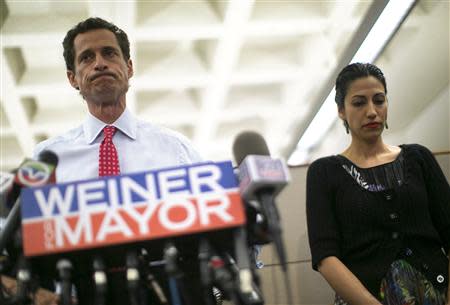The social (gaffe) network: Will Twitter's unfiltered megaphone scare away high-profile users?

Over the weekend, Twitter CEO Dick Costolo helpfully reminded us of something left out of the “risk factors” section of his company’s IPO filing: The service facilitates a wide range of breathtaking social media gaffes, allowing notable users and brands to make complete asses of themselves in 140 characters or less.
The user in this instance was Costolo himself. Evidently irritated by comments in a New York Times story about the paucity of women among Twitter’s upper executive ranks, board and principle investors, he zeroed in on one of the article’s quoted sources: “Vivek Wadhwa is the Carrot Top of academic sources,” he tweeted. Predictably, blurting a sixth-grader taunt in response to a perfectly serious discussion of a nontrivial social issue went badly. Also predictably, the gaffe became the story.
That the CEO of Twitter himself ended up at the center of a clumsy-tweet imbroglio is pretty remarkable, and perhaps says something about the service’s ability to “disrupt” (as techies like to say) basic ID and brand management functions. Twitter, more than any other social network, provides an unfiltered megaphone for celebrities, tastemakers and otherwise notable figures to tarnish their reputations, lose loads of money and, in extreme circumstances, ruin their careers.
It’s not like there haven’t been loads of cautionary tales already, involving tweeters famous and otherwise who came to regret sharing whatever popped into their minds. Perhaps Costolo, who spent some time doing improv comedy in Chicago, will recall Gilbert Gottfried getting fired as the voice of the Aflac duck after tweeting a series of tasteless jokes immediately after the Fukushima disaster.
Plenty of sports figures have been penalized for unnecessary tweeting, from Ozzie Guillen’s two-game suspension for a Twitter tantrum a couple of years ago right up through Tampa Bay Rays pitcher David Price’s recent apology for his odd “nerds” rant this weekend. Last month an obscure Democratic Party operative in California was fired for tweeting at Ted Cruz's speechwriter that he hoped her “children all die from debilitating, painful and incurable diseases.” Just last night, a news anchor in Philadelphia brought on a swarm of criticism for a tweet suggesting her station’s coverage of a local shooting would be as good as "Breaking Bad."
And then, of course, there’s former New York Rep. Anthony Weiner, who essentially saw his promising political career derailed due to an errant tweet.
Brands have gotten themselves in Twitter trouble, too: Like the “joke” on KitchenAid’s Twitter account involving the president’s deceased grandmother. And tweets have sparked any number of bizarre celebrity feuds — the scrap between Ice-T and, of all people, Aimee Mann, comes to mind. Even mega-tweeter Ashton Kutcher once had to apologize for blurting his ill-informed reaction to Joe Paterno’s dismissal from Penn State.
And so on. Twitter’s S-1 filing acknowledges that it would be a problem if celebrities, athletes and other high-profile figures move on to “an alternative product or service.” But maybe another possibility is that those celebrities, athletes and other high-profile figures will start to conclude that the risks of the social gaffe aren’t worth it.


